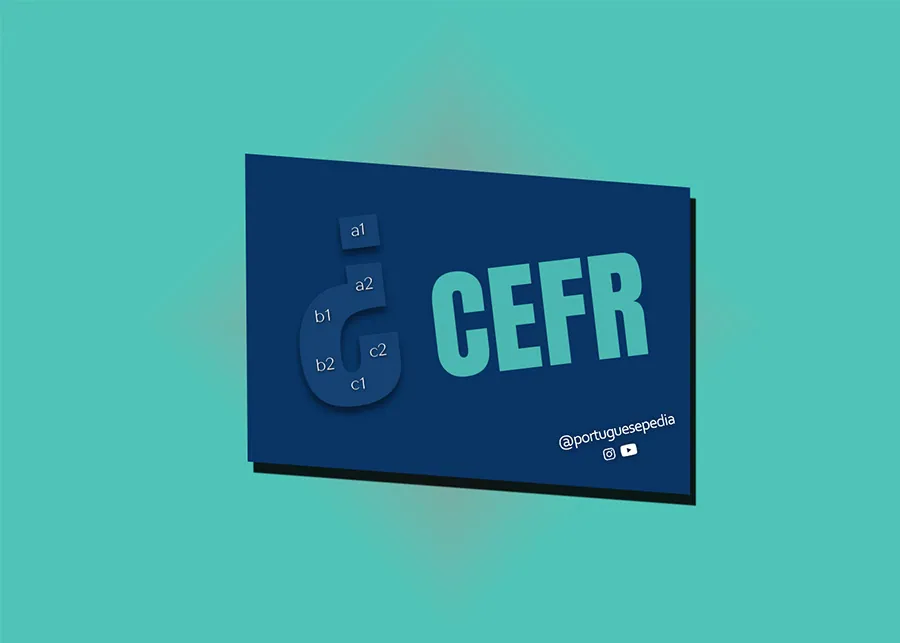
CEFR Levels (A1/A2/B1/B2/C1/C2) – What Do They Mean?
The CEFR – Common European Framework of Reference for Languages – is an international standard for describing the proficiency level of language learners.
It uses a 6-point scale – from A1 (beginner) up to C2 (mastery level) – to assess and compare language proficiency across different languages and to provide a common framework for language education and assessment.

What is CEFR used for?
The CEFR is used for a variety of purposes, including:
- Language learning and teaching: it provides a structured approach to language learning and teaching, helping learners and teachers to set goals, measure progress, and identify areas for improvement.
- Language assessment: it is used by language assessment/certification entities to develop exams that measure language proficiency across different levels.
- International mobility: it is used by employers, educational institutions, and immigration authorities to assess the language proficiency of people who want to work, study, or live in a foreign country.
- Curriculum development: it provides a framework for developing language proficiency that is aligned with the learner’s goals.
All in all, CEFR is a useful tool facilitating language learning, proficiency assessment, and international mobility.
CEFR Levels explained
Here’s what each of CEFR’s six levels entails.
A1 is not your starting point! Keep in mind that at the outset of your learning journey, you are not yet at the A1 level, but moving toward it. When you finally reach the A1 level, you’ll then continue your journey toward A2, and so on.
A1 (Lower-Beginner)
Learners can understand and use simple phrases and expressions related to basic personal information and everyday activities. They can interact at a very basic level provided the other person speaks slowly and clearly.
A2 (Upper-Beginner)
Learners can understand simple sentences and commonly used expressions related to areas within the personal realm (biographic information, family/kinship, personal interests, workplace, and so on). They can communicate in simple terms regarding concrete and everyday situations.
B1 (Lower-Intermediate)
Learners can understand the main points conveyed by text/speech on familiar matters (workplace, school, leisure, etc). They can interact under topics that are familiar and of personal interest and describe experiences, dreams, hopes, and ambitions in relatively simple terms.
B2 (Upper-Intermediate)
Learners can understand the main ideas of more elaborate text/speech on both concrete and abstract topics, including technical discussions in their field of specialization. They can interact with a degree of fluency and spontaneity that makes regular interaction with native speakers quite possible without causing strain for either party.
C1 (Advanced)
Learners can understand a wide range of demanding, longer texts, and recognize implicit meaning. They can express themselves fluently and spontaneously without much obvious searching for expressions. They can use language flexibly and effectively for social, academic, and professional purposes.
C2 (Mastery)
Learners can understand with ease virtually everything heard or read. They can summarize information from different spoken and written sources, reconstructing arguments and accounts in a coherent presentation. They can express themselves with fluency and precision while differentiating finer shades of meaning even in the most complex situations.
Learn more about CEFR at the Council of Europe’s website.
How long will it take to progress through CEFR levels?
If you wonder how long it will take to go from ground zero to A1, from A1 to A2, and so on… Well, it will vary enormously depending on factors such as your overall predisposition to learn languages, your self-discipline and ability to hold regular practice over time, how related your mother tongue is to your target language, your current level of proficiency, and – in case your target language is Portuguese –your previous acquaintance with other Romance languages.
As a general guideline, it is estimated that moving from one CEFR level to the next higher level requires anything between 120 and 300 hours of language learning practice (depending on the factors outlined above).
Keep in mind that as your level goes up, you might need more hours to get to the next one. For example, if it takes you 120 hours to reach the A1 level, it might take you 160 hours to go from A1 to A2.
In any case, consistency and regular practice are key to making progress in your target language, so try to practice as often as you can, and seek out opportunities to use the language in real-life situations.
If you want to dive deeper into this topic, here’s an article that might interest you: How Long Will It Take Me to Learn Portuguese?
Language proficiency assessment in Portuguese (CEFR-based)
In Portugal, CAPLE (Centro de Avaliação e Certificação de Português Língua Estrangeira) – along with its certified centers around the world – is the only recognized entity for certifying language proficiency in Portuguese.
Accordingly, to get a language proficiency certificate in the Portuguese language, you’ll need to apply for an exam at CAPLE.
Since the A2 level is a prerequisite for obtaining permanent residency or becoming a Portuguese citizen, most people will take the CIPLE exam (Certificado Inicial de Portugês Língua Estrangeira, which assesses proficiency at the A2 level).
If you want to learn more about how to apply or prepare for the CIPLE exam, read this one: Taking the CIPLE Exam to Get Permanent Residency in Portugal or Become a Portuguese Citizen.

Olá! I'm Pedro and I'm your Portuguese teacher.
Ready to unlock the beauty of European Portuguese? Portuguesepedia is your key! This all-in-one platform provides a wealth of learning resources, from bite-sized video lessons to immersive idiomatic dips. Perfect your pronunciation and aural comprehension with listening drills and solidify your grammar with in-depth articles. Start your Portuguese journey today!
Share this article
Get my guide "Key Strategies to Learn Portuguese" for FREE.
